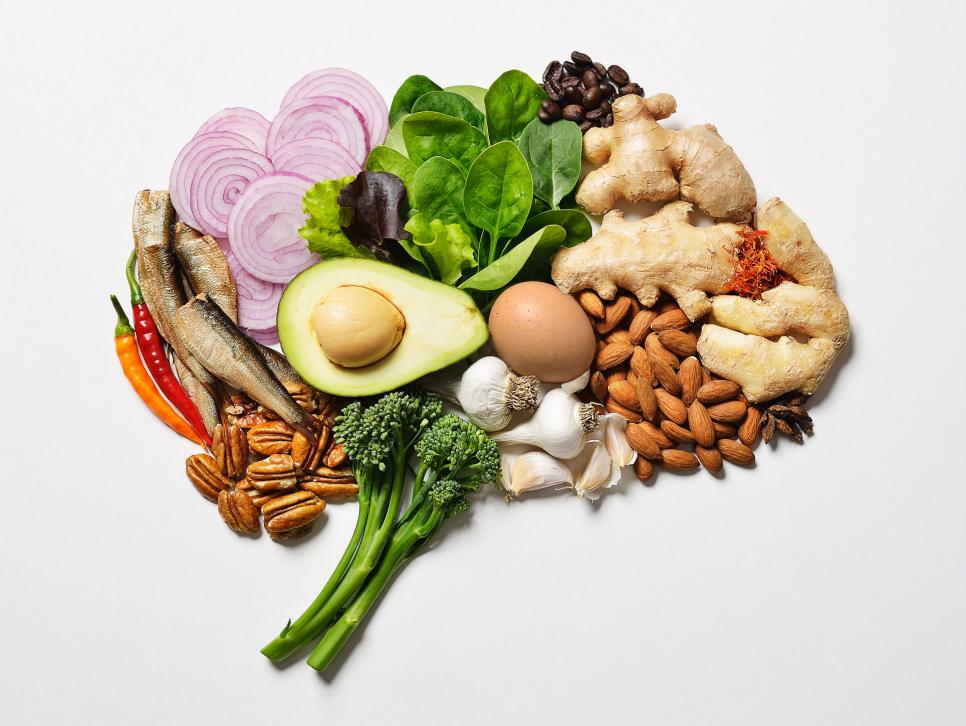Did you know that your granny was possibly right when she told you fish was brain food? Did you know that several studies have shown that countries with higher seafood intake, such as China, have lower instances of mental disorders? Did you know that just like other organs, your brain needs essential nutrients to function at its optimum?
When you begin to notice that you go to the kitchen to pick a knife but on reaching there, you’re lost for the reason for entering the kitchen, or when you begin to struggle with maintaining your concentration in a task, or with giving adequate attention/alertness to a project, or with thinking creatively for a goal, or when you frequently battle mood swings, and your acquired skills say technical or language seem to be playing ‘hide-and-seek’ games with you; know that it’s time to check what you eat.
The truth is; healthy eating is something that none of us, at any age, can afford to keep putting off. However, despite all the “super food” claims, no single food can be described as a “brain food.”
So, Let’s Quickly Zoom in on These Brain Functions:
- Critical Thinking Power: Many nutrients influence this cognitive function, including the B
vitamins, the minerals- magnesium, iron, iodine and zinc, omega-3 fatty acids and not least, carbohydrate. Hence, those strictly following low-carb diets for weight loss should remember that glucose is the brain’s preferred energy source, and maintaining a steady level of energy prevents “highs” and “lows” and enhances good creative thinking. Eating regular meals that include starchy foods, such as potatoes, rice, pasta or bread, provides a steady supply of carbohydrate to maintain the brain’s glucose requirement all day. You may however reduce the quantity (not regularity) and also increase your physical activity to burn the acquired calories if you are a weight-watcher.
(c) David Malan/Getty Images 2. Mood and Memory: The brain is one of the organs with the highest level of fat, so a good supply of unsaturated fatty acids is also needed. Foods rich in unsaturated fats include vegetable-based oil or spread (olive, rapeseed, sunflower), nuts, seeds and oily fish. Low levels of omega-3 fatty acids have also been found in people suffering from depression. Oily fish is the best source of long chain omega 3s (DHA and EPA) but all seafood contains a range of nutrients that may be of benefit. The key nutrients are selenium, iodine, zinc and vitamin B12, all of which are involved in brain function. In fact, low levels of these can be predictive of depression. Peas, beans, lentils, nuts, seeds, fruits and vegetables also provide
B vitamins including folate, as well as zinc, which can help to manage depression.3. Energy Levels: It is suggested that low glycemic index (GI) foods such as whole-grain
foods (wholemeal bread, brown pasta, whole-grain breakfast cereals) are more likely to provide a steady supply of glucose, with benefits for them than the high GI foods that cause a sudden, short-lived glucose rise like white rice, yam, and white bread.4. Concentration and Attention: Fluid intake is also necessary for normal cognitive (brain) functions – even mild dehydration can impair concentration as well as influence mood – so, whatever your age, take fluids regularly. However, don’t forget that alcohol has a dehydrating effect; drinking too much of it can lower your B-vitamin levels and make you more depressed and anxious. Make sure to limit your intake to no more than two to three drinks on no more than five days a week. Caffeine, on the other hand, can aid memory and attention in the short term, especially in those who do not consume it regularly, but a high intake can cause jitteriness and anxiety, and interfere with sleep, all of which compound stress.
So, if you’ve been weakening your brainpower or locking it up as a result of what you eat, you now know better. Go and SIN no more!
(NB: Other lifestyle areas that influence the human brain power like exercise, environment, sleep, laughter, sex, spirituality, etc. do exist.)
About the Writer
 Dr Osaz (Deji Osasona), is an integrative physician, psychotherapist, life & wellness coach, and MD, WINBOX centre (a lifestyle clinic and behavioural health centre based in Lekki, Lagos). For expert help on effective stress management and resilience building, send a mail to drosaz@winbox.com.ng for enquiries on available coaching and therapy bookings or training programs. Connect with Dr Osaz on Instagram and Twitter
Dr Osaz (Deji Osasona), is an integrative physician, psychotherapist, life & wellness coach, and MD, WINBOX centre (a lifestyle clinic and behavioural health centre based in Lekki, Lagos). For expert help on effective stress management and resilience building, send a mail to drosaz@winbox.com.ng for enquiries on available coaching and therapy bookings or training programs. Connect with Dr Osaz on Instagram and Twitter
